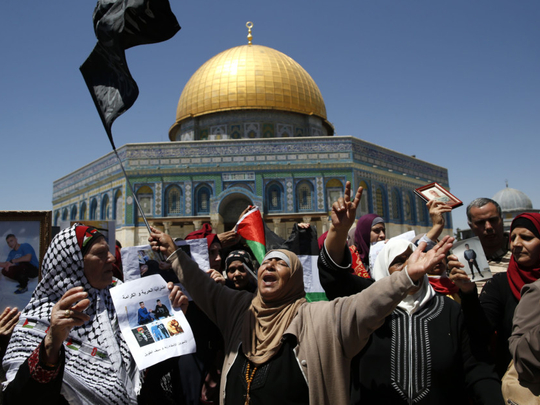
Ramallah: Palestinian Foreign Minister Riyad Al Malki is heading to Geneva to meet the head of the International Committee of the Red Cross to press for intervention to save the lives of hundreds of Palestinian prisoners, who as of Wednesday, were on their 17th day of their hunger strike in Israeli jails.
Al Malki is urging the humanitarian aid organisation to support calls for the prisoners’ demands to be met and for international law and conventions to be upheld. Meanwhile, the condition of the 1,800 prisoners is said to be in an extremely dangerous state. Dozens of prisoners have been moved to hospitals after their health sharply deteriorated.
The Israeli regime “is imposing an unprecedented, inhuman and punitive siege on the prisoners,” Eisa Qaraqei, leader of the Commission of Detainees and Ex-Detainees Affairs told Gulf News.
He called on the UN to take action against Israeli by freezing its membership. The prison has been shifting inmates between jails, in order to confuse lawyers, who are desperately trying to meet with their jailed clients.
Meanwhile, anger and tension continue to grow among the prisoners’ families, who, with other supporters, have set up tents in the centres of all West Bank cities to demonstrate solidarity with the fasting inmates.
The prisoners are surviving only on water and salt since they began their strike on April 17, but, according to Qadoura Fares, head of the Palestinian Prisoners’ Society, they will give up water as well from Sunday, unless the Israeli Prison Service meets their demands.
The prisoners are demanding an end to administrative detention and solitary confinement, and want access to their lawyers and family.
At the moment, 7,000 Palestinian prisoners are being held in 28 Israeli prisons and detention centres, including 56 women, 13 lawmakers and 200 minors.












